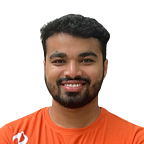Selling software is a random walk.
Why I’ve decided to spend 6000 hours studying software startups
It’s been almost a year since I started putting every free hour into studying software (specifically SaaS) startups. A lot changed in these 1000 hours & I ended up creating a fast-growing podcast, a blog, a newsletter & audience on Twitter.
This was never the plan, though. I just wanted to learn stuff so that my odds of success would be higher when I start my software company next time. I wanted to make this a game of skill rather than chance.
A bit about myself
I am a software engineer from India. I graduated from a college called IIT, where ~5k people are accepted yearly out of 1.5 million applicants. Getting in was fiercely competitive, but there was a clear path. As an ambitious person, my goal was always to start something of my own down the line. Maybe in my 30s or 40s. But I wanted to set myself up for success right from the beginning. I began building startups right from my college days. Who cares if it fails? I would at least learn something.
I’ve started three companies (all SaaS) since then. I would build an end-to-end product in weeks. Building the product was always easier for me. Selling never was. No one bought the first two. The third time around, I had few paying customers. Things seemed like they were going somewhere this time. At least, I felt that way for a while. Only for me to close shop again after few months.
Why? Because the whole selling process was very random. I was working on several acquisition channels & I had no clue which one would work. I did manage to get a few customers, but there was no predictability. Nothing was deterministic.
Selling software is a random walk.
Naturally, I looked around. I’ve started talking to successful founders who are nailing it. I looked for successful patterns. The results were surprising.
The most successful SaaS founders were doing one of two things. They either stick to 1–2 acquisition channels where they have prior experience & expertise. Or, they went on experimenting with a whole bunch of channels until they figured out what was optimal for them.
90% of the time, it was the first case. The rest 10% could afford to experiment because they had enough resources( funding ) to do. But for the majority, you either figure out 1–2 profitable & scalable acquisition channels within 6–12 months (or) go bust. Like me.
Coming from a software engineering background where you could nicely plan your roadmap & execute it flawlessly, this way of shooting in the dark felt uncomfortable. There has to be a better way to one’s go-to-market strategy. One which is more predictable. It took me a while to figure it out.
Use data to make it a game of skill.
The solution was to use data. Simple. Look at other companies which are very similar to you ( in terms of market, ACV etc.) & copy what’s working for them & avoid whatever didn’t. It’s obvious. Why isn’t everyone doing this, then?
Because of the lack of such data points. The above strategy works only if you have comprehensive data points from 10–15 companies that are very similar to you in every sense. At the exact stage, you are at right now. With such data, you can start making data-backed decisions (without actually experimenting and failing ) & make this process more predictable.
Guess what? Every SaaS founder in the world knows this “strategy”. What’s the problem, then?
Such data is non-existent. It’s not because founders are uncomfortable sharing such data points. It’s because no one asks them. This was my “aha moment”.
I’ve started hosting an interview-style podcast to create such non-existent data & hopefully create value out of thin air. I’ve started a blog, newsletter & Twitter to repurpose & distribute this content.
So far, I have focused a lot on lead generation, but the same data-backed decision logic applies to lead conversion & expansion as well. In fact, if you were to listen to 100 interviews where founders sold their companies, you would be in a much better position to sell yours. It’s that simple.
What’s next?
The 6000 hours I mentioned in the beginning, was not arbitrary. It’s what I can afford to do for the next five years during weekends. It’s been a year already & I love the progress I made.
I just finished an interview & the founder, who’s around 600K ARR, told me that “he’s going to try out affiliate marketing next after listening to a similar story on one of my previous episodes”. He’s convinced it will work for him based on that conversation. That’s already a huge success for me. It makes sense for me to do this, after all.
I’m just starting out & I firmly believe I can help many SaaS founders succeed over the next few years. Follow me on Twitter as I continue to document my journey there.
